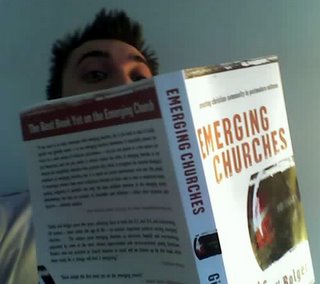A response, not a reaction

Hey, I said in answering Jeff's question (see the 'book recommendation' post) that I'd blog something about church not being a reaction but a response. It's a view that I think I've articulated for a couple of years now and has been shaped by seeing church-planting that has been quite odd in its outlook, in a number of places.
In Luton less than one percent of 18-30 year olds go to church. That's about 330 people, in a city of 185,000. At the same time, we struggle to engage with this group through meaningful and fruitful evangelism. That's not a criticism - I know that it's hard! In my job, I see the difficulty of this task every day. This is the situation, and the situation is bad. There is considerably more going on with almost every other age-group church wise, than this one.
I think the challenge to us is to engage with this situation, and I term this the 'response'. How do we turn around those statistics? How do we make evangelism amongst young adults a priority? I think the answer is long and multi-faceted, but for me, it seems crazy that one of those responses will not be church planting. That is a responsable engagement with the issues leading to a respectable part of the solution. This is good, healthy, and at the end of the day, sustainable.
The other root of church planting is the 'reaction'. Churches become defined by what they are not; planted by people who are fed-up with existing models of church or the leaders in those churches, or the seeming unwillingness in those churches to listen to their agendas.
Church planting as a reaction to other churches sucks. Not just in the ultimate sense, but for the people they are reacting against, for the people actually planting them and the people they come into contact with. Many of these are to a lesser or greater extent churches planted in rebellion. And I don't think that is sustainable. When you hit the dificult stuff, the answer to 'Why are we doing this?' ends up being, because all the other churches are crap. That is not a good place to find yourself!
When we inevitably hit trouble I want us to answer the question very differently. For starters I don't think the other churches are crap. I think we have some valueable stuff to bring to the party. I don't think every church should have the same agenda as ours. I think that our agenda is valid.
I don't want to plant something that is a reaction to the present church scene, taking every insecurity we have as a group and projecting it on something as prescious as the church. I want to see a situation where more people have been on a 'club18-30' holiday than a church in the past year transformed - and that's why planting needs to be a response not a reaction.


